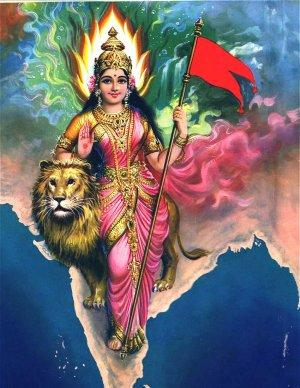Dec 12, 2025
Dec 12, 2025
 After we gave our nation an anthropomorphic form, India became Bharat Mata, Mother India, and ever since, we have been referring to her as such with great reverence, like the veneration one uses toward one’s parents.
After we gave our nation an anthropomorphic form, India became Bharat Mata, Mother India, and ever since, we have been referring to her as such with great reverence, like the veneration one uses toward one’s parents.Sadly, she was treated brutally for over 400 years; first by Muslims during the Mughal Empire from 1526 until around 1757 (though Mughal dynasty ended in 1857) and then by Britishers during the British Raj from 1757 until 1947. Her scars at the hands of intruders are still visible.India has conferred many blessings on the world at large; notably rice, cotton, the sugarcane, many spices, the domestic fowl, the game of chess, and, most important of all, the decimal system of numerical notation, the invention of an unknown Indian mathematician early in the Christian era.
Before the birth of freedom we have endured all the pains of labour and our hearts are heavy with the memory of this sorrow. Some of those pains continue even now. Nevertheless, the past is over and it is the future that beckons us now ....The service of India means the service of the millions who suffer. It means the ending of poverty and ignorance and disease and inequality of opportunity.
The ambition of the greatest man of our generation has been to wipe every tear from every eye. That may be beyond us, but as long as there are tears and suffering, so long our work will not be over.
14-Aug-2012
More by : Vasant G. Gandhi